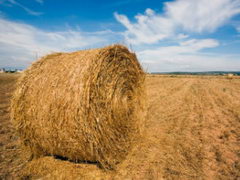Additional information is available on the pros and cons of biomass energy?
Biomass energy pros and cons- additional informationWhat re the disadvantages of biomass energy?
Biomass energy- advantages over non-renewable energy sources
Biomass alternative energy demand may be a good roi

There are many pros associated with biomass energy production. Biofuels are as effective as fossil fuels, but a lot less polluting. Using municipal waste as biomass renewable energy also has many benefits, because normally this garbage would be dumped into landfills, which pollutes the environment even more. Biomass renewable energy solves the problem of dependence on foreign oil, while at the same time gets rid of massive amounts of trash currently polluting our planet. It is a clean alternative to fossil fuels, which are getting harder to locate and extract, causing massive damage to the surrounding area and wildlife. Another benefit of biomass energy production is the reduced transportation requirements. Biomass renewable energy can be produced and supplied locally, which eliminates the need for long pipelines and other infrastructure. In this way, biomass energy production also decreases the pollution resulting from vehicles that transport the energy.
Biomass energy production does come with its down side, however. It can release greenhouse gases into the atmosphere when burned, but in smaller amounts than that which is released by the burning of fossil fuels. Biomass energy plants need to be equipped with exhaust gas cleaning technology to make them completely environmentally friendly. Also, there is the issue of how much it costs to produce and process materials needed for biomass energy production. Chipping, compacting, cutting and shredding massive volumes of biomass is frequently required. However, such cleaning technology is often not economically feasible for smaller plants. Moreover, harvesting, collecting, and storing raw biomass materials can be very costly, especially if we take into consideration the large volumes needed in comparison to fossil fuels.
Another problem that has been raised with biomass renewable energy is that some of the biofuels are created from food crops such as corn and soybeans. This takes these foods away from the world food supply, and some have blamed biofuels for food shortages and increased hunger around the globe. However, new methods have influenced biomass energy pros and cons profoundly, creating new sources of biomass renewable energy that do not affect the food supply and come from plants that are not edible nor use fertile soil. This includes materials like fungus, algae, rapeseed, and even household garbage or municipal waste.
It is important to compare biomass energy pros and cons, but more often than not its advantages greatly outweigh the disadvantages. This source of alternative energy may hold one of the important keys to our future, where renewable power sources that are environmentally friendly are predominantly used. This may also eliminate the use of damaging fossil fuels, on which the world is so dependent now.
For more information, go to:
en.wikipedia.org,
eere.energy.gov
Related Posts
- 7 Most Promising Feedstocks for Biomass Energy Generation
- Algae Biofuel Created by Intel Science Fair Winning Whiz Kid
- Will Bioenergy Save Mankind?
- Biomass Gasification Technologies: knowing the differences for each feedstock types
- Health Effects of Biomass Fuel
4 Responses to “Biomass Energy: Pros and Cons – Updated Article With New Information”
Leave a Reply
You must be logged in to post a comment.





The oil company Shell is now working with major brazlilan compaines to bring biofules over from brazil to Europe. There is enomous potential here. Brazil has the climate, the infrastructure, and the will to grow biofuels, and Europe has the desire to buy biofuels. This is one for the very near future!
September 28th, 2010 at 1:29 pmYeah i heard about that too. This will mean that much less energy is required for processing biofuels to convert them into energy.
September 28th, 2010 at 1:20 pmThis month (September 2010) Researchers from Cambridge University have released a report on key plant enzymes that reduce the effectivness of non-edible biofuels such as straw. This breakthrough will (according to them) vastly improve the viability of biofuels as an energy resource.
September 28th, 2010 at 1:19 pmThanks for this! I’ve been searching all over the web for the details.
August 18th, 2010 at 1:35 am